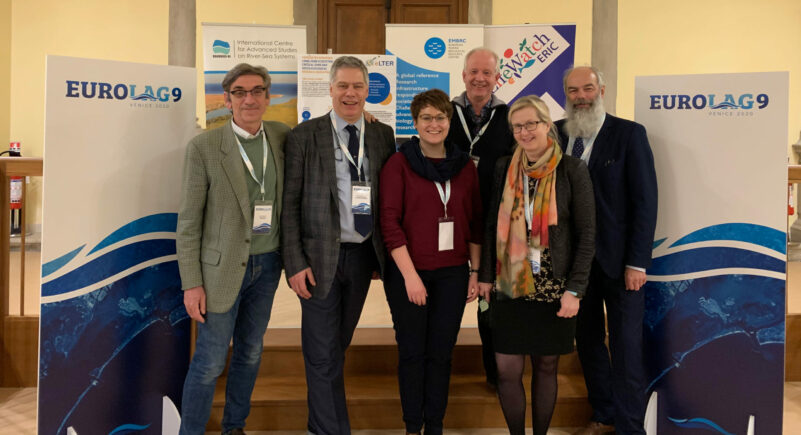
Four environmental Research Infrastructures to build a new joint vision for transitional and coastal environments in the future.
Two years after the last appointment in Athens, the 9th European Coastal Lagoons Conference (EUROLAG) was held in Venice, from 20 to 24 January 2020. Hosted by the Institute of Marine Sciences (ISMAR) of the Italian National Research Council, the Consortium for Lagoon Research (CORILA) and the University of Venice Ca’ Foscari jointly organised this 2020 edition with a focus on science, research and management issues related to lagoons and transitional areas.
The EUROLAG conference marked a very important step not only on the specific coastal lagoon scientific and managerial issues approached in the five days, but it also distinguished itself by putting in the spotlight European research infrastructures, their potential and capacity to tackle big societal challenges, and connecting and supporting scientists in their work.
The conference opened every day with a keynote talk given by one of the four research infrastructures involved: LifeWatch ERIC, eLTER, Danubius-RI and EMBRC-ERIC. These sponsors combined their efforts and pooled their strengths to chart a path towards how environmental research infrastructures can collaborate in transitional and coastal environments in the future, avoiding the duplication of tasks, and identifying areas for more intense cooperation and engagement with stakeholders.
More information on the congress, its programme and contributed sessions are available on https://www.eurolag9.it/.